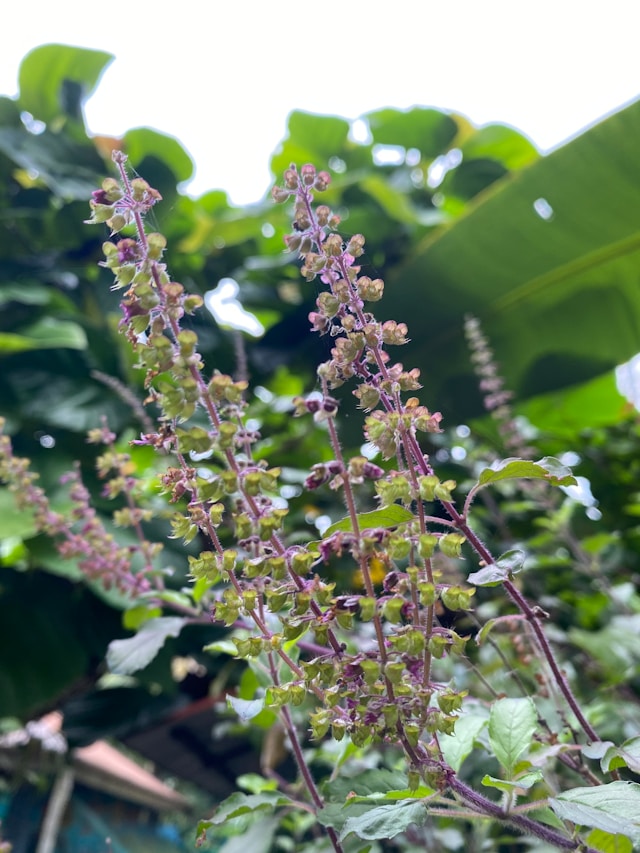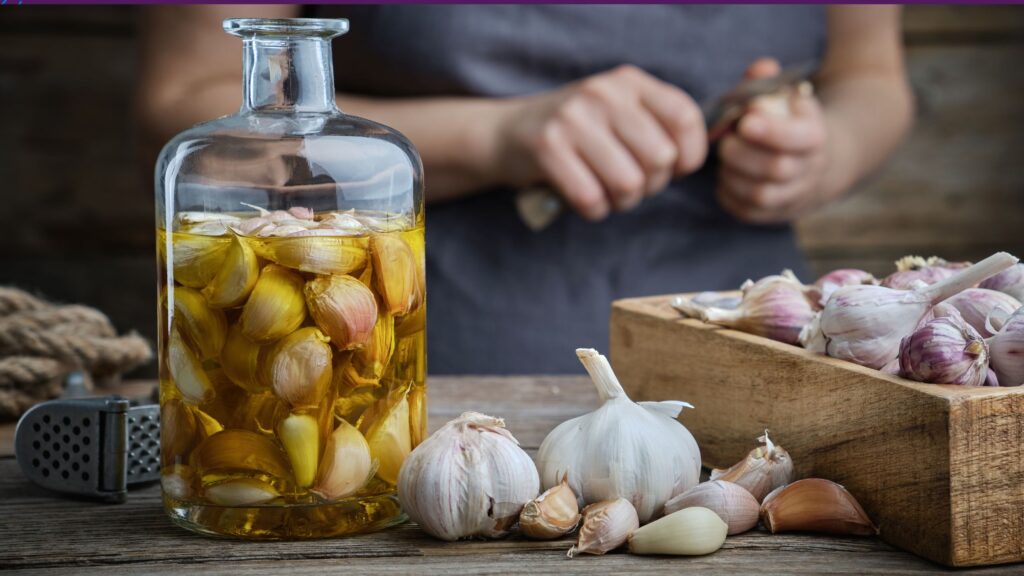We’ve all been there – sitting in the doctor’s office feeling overwhelmed as they talk about blood sugar numbers and medication side effects. Diabetes is a challenging condition to manage each day, but taking care of our health doesn’t need to feel like such a chore. As Julie, a mother of two from Illinois, knows all too well from her own diabetes journey, “Finding natural remedies was so important to me. I wanted to feel like I had some control over my condition without relying fully on prescriptions.”
That’s where herbs come in – they provide soothing, healing relief in a way that feels good for both body and soul. In many ancient cultures and medicines, herbs have long been celebrated as powerful allies for health. So in this article, let’s explore the top 10 herbs that can help diabetes be a little more manageable by supporting healthy blood sugar levels in a natural way.
Top 10 Herbs for Diabetes: Natural Remedies to Help Manage Your Health
Cinnamon

One of the most well-known herbs for diabetes is cinnamon, beloved for its warm, sweet flavor. Studies have shown that just a quarter to one teaspoon of cinnamon per day can help lower fasting blood sugar levels. Tom, a construction foreman from Texas, says cinnamon reminds him of his abuela’s cooking. “It’s like getting a hug from my childhood every time I sprinkle some into my oats. And knowing it’s good for keeping my levels steady makes me feel like I have her love and support on this journey, too.”
Fenugreek

Fenugreek is an herb with a long history of traditional use for diabetes in Ayurveda. It may help regulate blood sugar by slowing the absorption of carbohydrates. For Aisha, a university professor in Michigan, incorporating fenugreek into her daily routine has brought new hope. “I was frustrated when medications stopped working for me, but fenugreek seems to be making a real difference. The seeds have a unique, almost maple-like flavor that reminds me there are alternative options if modern medicine fails.”
Bitter Melon

Originating from Southeast Asia and parts of India, bitter melon, also known as karela, contains plant compounds that may stimulate the beta cells of the pancreas to secrete more insulin. It also seems to enhance the effects of carbohydrate-digesting enzymes. For Anthropic employee Sai, bitter melon holds deep cultural significance. “No matter where life takes me, boiling up a pot of bitter melon soup always makes me feel close to home. The bitterness is a reminder of my roots – and the many gifts of tradition that modern times often overlook.”
Gymnema Sylvestre

Commonly called “gurmar” in Ayurveda, Gymnema sylvestre is a vine that grows in hedges throughout tropical regions of Asia and Africa. It derives its name from the Greek words for “destroyer of sugar,” which refers to its ability to potentially reduce sugar cravings. For Nadia, a food blogger from Mumbai, Gymnema sylvestre tea has become a staple. “Something about that first sip settles my mind and helps me focus on listening to my body’s needs, not its wants. I always feel lighter and calmer when I make the time for it each evening.”
Ginseng

As an adaptogenic herb, ginseng can help moderate blood sugar fluctuations. The active compounds, known as ginsenosides, may improve insulin sensitivity. Ginseng also contains antioxidants that can aid cellular function. For Ming, who works at a natural pharmacy in Guangzhou, ginseng root represents resilience. “Through many challenges in life, ginseng has persisted. Just as it has struck deep roots wherever it grows, I hope to stay rooted in health – and keep growing stronger each year, like this remarkable herb.”
Turmeric

A key component in turmeric known as curcumin supports normal pancreatic cell function and has anti-inflammatory properties helpful for managing diabetes and its complications. Turmeric’s sunny yellow hue feels uplifting to Mary, a retired schoolteacher from Colorado. “Life dealt me some bad genetic cards, but I say, so what? Each morning, I grate turmeric into my eggs with a smile – it’s like sprinkling on a little sunshine to nourish my soul along with my body.”
Aloe Vera

Aloe vera gel may lower blood sugar and reduce oxidative stress when used topically or taken orally. It also has soothing antibacterial and anti-inflammatory qualities. For Anthropic employee Emmanuel, working with aloe vera plants offers healing in more ways than one. “Whenever I’m around their thick, soothing leaves, all the noise in my mind quiets down. Their strength and perseverance in harsh conditions inspire me to keep taking good care of myself, one day at a time, no matter the challenges.”
Holy Basil

Also known as tulsi, holy basil has been used for centuries in Ayurvedic and traditional Indian medicine as an adaptogen. Recent research suggests it may aid blood sugar control, in part by reducing stress – the silent killer. Tulsi brings Deepak, an engineer living in Bangalore, comfort through moments of self-care. “Among the bustle of city life, tulsi tea slows everything down. The warmth sinking into my bones feels like an old friend saying it’s okay to just ‘be’ for a little while.”
Neem

With anti-diabetic, antibacterial and anti-inflammatory qualities, Neem supports overall health and wellness. Though bitter to taste, for Madoka, a baker in Kobe, its benefits outweigh any unpleasant flavors. “I didn’t always appreciate Neem’s medicinal qualities until diabetes changed my relationship with food and with caring for myself. Now its bitterness reminds me that life often requires acquiring a taste for what truly nourishes us.”
Garlic

A staple seasoning containing allicin, a compound that may help regulate blood sugar. Garlic also supports normal cholesterol levels. For Italian grandmother Sophia, it holds deep meaning through memory and tradition. “Garlic was always in my nonna’s kitchen – keeping us well, connecting us through sharing meals together. Now it feels like an old friend here with me as my health declines. But its familiar scent and flavor make me feel close to love that has passed, and the love that remains.”
So, managing diabetes can feel discouraging and isolating at times. But seeking community through shared experiences, traditions and alternative remedies allows us to reclaim a sense of self-care, control, and connection. Incorporating herbs relevant to one’s own heritage and health goals is a potent yet gentle way to care for both body and soul alike. With patience and presence of mind, diabetes need not take full command – there are many allies to be found all around in nature’s apothecary if only we open our eyes to see them.
How to Incorporate Herbs into Your Diet
Now that we’ve explored the top 10 herbs for diabetes and their meaningful associations, allow these suggestions to guide you in incorporating them safely and effectively:
- Brew teas with 1-2 teaspoons of dried herbs, steeping for 5-10 minutes and enjoying 1-3 times daily. Or add fresh leaves and roots while cooking grains, curries, and soups.
- Take herbal supplements according to product directions for standardized doses. Make sure they’re high-quality and sourced ethically.
- Savor fresh or dried seasonings in moderation – a pinch of cinnamon here, a sprinkle of ginger there. Let flavors shine without overpowering other ingredients.
- Connecting cultural traditions to one’s health honors where we come from while caring for the present. Seek herbs relevant to your own heritage and identities for their personal significance as much as their benefits.
- Pay attention to how certain herbs make you feel physically, emotionally and spiritually. Personal preference and individual biochemistry matter greatly in determining what truly nourishes one’s whole well-being.
- Be patient, giving herbs at least 4-8 weeks to take full effect before changing doses or routines. Diet, stress, sleep, and other lifestyle factors also play a role in managing diabetes day to day.
Precautions and Considerations
While herbs can be a meaningful addition to managing diabetes when taken appropriately, it’s still important to consult your doctor before making any significant dietary changes. And remember that herbs are no replacement for prescribed treatment plans or emergency care when needed. A few important precautions to keep in mind:
- Monitor your blood sugar closely when starting or altering herbal supplements, as some like cinnamon, fenugreek, and bitter melon may potentiate insulin and oral medications.
- Inform all healthcare providers of all herbs, supplements, and medications being used to avoid potentially adverse interactions.
- Individuals with liver, kidney problems, or other medical conditions may require dosage adjustments or alternative remedies depending on their personal health picture.
- Pregnant and breastfeeding women should only use herbs under the guidance of an experienced clinician due to higher risks.
- Just as with any supplements, be wary of product quality and stick to reputable brands, avoiding potential contaminants.
- Seek emergency care immediately for symptoms of low blood sugar like confusion, dizziness, or seizure. Herbs are meant to support – not replace – medical protocols for safety.
Conclusion
Taking care of our health, especially in the face of chronic conditions like diabetes, can feel like navigating uncharted waters at times. But no one needs to travel that journey alone. Seeking community through shared struggle and alternative remedies allows us to reclaim a sense of control when modern medicines fall short.
Though diabetes remains complex to manage day to day, small choices add up to make a big difference over time. Incorporating healing herbs can be done safely and effectively with patience, awareness, and medical guidance. Honoring cultural traditions through one’s diet, rituals and self-care promotes wellness of body, mind, and spirit alike.
Making lifestyle allies of plants we’ve shared this earth with for millennia feels fitting – they offer experience, wisdom, and compassion we can tap into however our personal needs present. The goal is simply to feel empowered while nourishing both soul and self each day. And there are many natural places to find that empowerment if only we remember to look with eyes open to possibility, not just reality.
Diabetes may impact lives in unchosen ways, but how we choose to live well with it remains ours to shape daily through community, awareness, and continuous learning. Our wellbeing lies not in avoidance of struggles, but how they inform our deeper understanding of what nourishes healing – from within and without. May herbs be colleagues lighting our way on that path, and may sharing experiences remind us we walk it side by side.
FAQs
Can herbs cure diabetes?
Unfortunately no, herbs on their own cannot cure diabetes. Diabetes is a chronic condition that requires ongoing medical management. However, regularly incorporating appropriate herbs into your lifestyle can help control blood sugar levels and make diabetes easier to manage. Think of herbs as complementary allies rather than replacements for other treatments.
Are there any side effects of using herbs for diabetes?
As with any intervention, some individuals may experience minor side effects from certain herbs depending on dosage and personal biochemistry. Common ones include mild digestive upset. It’s always best to start low and slow, paying attention to how your body responds. And check with your doctor, as some herbs like fenugreek may potentiate medications. Going slowly and monitoring closely can help prevent potential interactions.
How long does it take for herbs to lower blood sugar levels?
Most studies show herbs take regular daily use for 4-8 weeks to begin noticing an effect on blood sugar control and overall health markers. Be patient and consistent as it takes time for subtler shifts to manifest at a cellular level. Paying loving attention to yourself, and listening closely without expectation is the gentlest approach for both body and mind.
Can I use herbs alongside my diabetes medication?
For optimized safety, always consult your healthcare team before adding significant dietary changes alongside prescription drugs, as some herbs may potentiate insulin and oral meds. That said, many find incorporating carefully chosen supportive herbs under medical guidance empowers self-care without compromising health protocols. Open communication and a caring integrated approach are ideals to strive for.
Are there any herbs I should avoid if I have diabetes?
Individuals taking blood sugar-lowering medications should use caution with fenugreek, cinnamon, and bitter melon, as these have the strongest evidence for potentiating effects. Women who are pregnant or breastfeeding also require extra precaution, as do those with liver or kidney disease. But by cultivating kind awareness of oneself, and trusting one’s care team as valued partners, safe, tailored solutions balancing personal needs with well-being can certainly be found.




